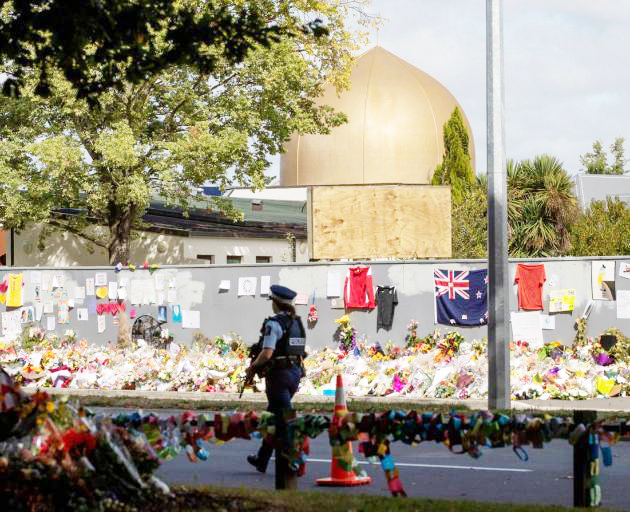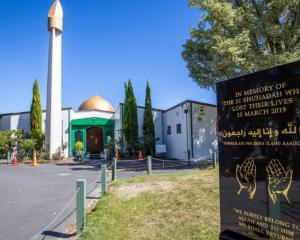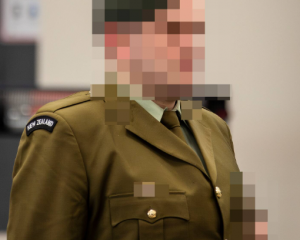
Rashid Omar lost his 24-year-old son, Tariq, in the March 15, 2019 terror attack on the Al Noor Mosque.
Six years on, he still struggles with grief, but driving the electric train has brought Omar comfort.
A panicked call from his wife Rosemary filled him with dread as he drove to Friday prayers that day. Friday prayers at the mosque start with the first Khutbah (sermon) at 1pm. Shortly before 1.40pm, a gunman entered the building and opened fire on worshipers.
“She said she had just dropped our son Tariq off at the entrance and was looking for a park when she heard gunshots.”
Rosemary sent a text to Tariq, telling him to find somewhere to hide after seeing people running from the mosque and climbing over the fence.
An electrician, Omar was held up at a job and running late.
“I find it hard working full-time and getting to prayers sometimes.”
He sped up to get there, but by the time he arrived, police had already set up roadblocks.
“I was running late. I don’t know if I was lucky or not,” he said.
"My biggest regret is not being there with him at the time. It might not have changed anything but I wish I had been there.”
Omar met up with Rosemary at the Hagley Park cordon, hoping for the best, but fearing the worst.
“He wasn’t answering his phone, we were very worried. We waited for hours and hours into the night to hear any news about our son.”
Omar said it wasn’t until around midnight the next day, in a room full of anxious families at Christchurch Hospital, that they learned what had happened to Tariq.
“The imam read out the names of the people who died, one-by-one. It was gruelling.
“We didn’t want to hear any of the names, but then he read out Tariq's name.
“My body felt completely weak and everything went silent. I couldn’t hold it together, there was so much hurting inside.”
Tariq was among 51 worshippers killed in the terror attack, which also left 40 others injured. At the time of the attack, Tariq had just finished his geology degree and was looking for work.
Omar said identifying his son’s body was the hardest thing he had ever done.

Omar last saw his son the night before the attack.
He said Tariq listened to the Cat Stevens song, Peace Train and talked to his mother about it.
“He said, ‘oh, I love this song’.”
Omar mentioned his son’s love of the song to Yusuf Islam, formerly known as Cat Stevens, when the musician visited Al Noor Mosque to support the victims’ families.
“He said he was sorry for what happened and it shouldn’t be this way. He was very consoling and he gave me encouragement and support for my grief.”
Yusuf Islam performed Peace Train song a week later at the Hagley Park memorial service for the victims’ families.
“He mentioned Tariq’s name and how he had heard he liked the song.”
Omar was one of the first to volunteer after Yusuf Islam gifted the Peace Train to the people of Christchurch in 2022.
“It’s something I felt I needed to do, to give back to the public because of all the help and compassion they gave to us.”

“This is the grief I’m facing every day, but by doing this I feel a bit better by making people smile, especially the children,” Omar said.
He is one of 41 volunteers who help keep the Peace Train running.
Omar said driving the train has brought him joy and a sense of connection.
“I feel a connection with Tariq. The train reminds me of him.”
The 13-metre-long, battery-powered train tows four carriages and can carry up to 16 passengers.
“It’s very popular,” Omar said.
“Often when we’re due to finish, more people start lining up even though we say last ride. So we keep going as long as the battery holds out.”
Omar said he plans to keep volunteering for as long as he can.
“Allah is looking after Tariq, and one day I’ll see him again. I’m sure he’s happy with what I’m doing now.”
The Peace Train operates in the Botanic Gardens from September to April, and last season was its busiest yet, carrying more than 10,700 passengers.
- The train is free to ride and, weather permitting, departs from behind the Botanic Gardens kiosk every Sunday from 10am-1pm.













